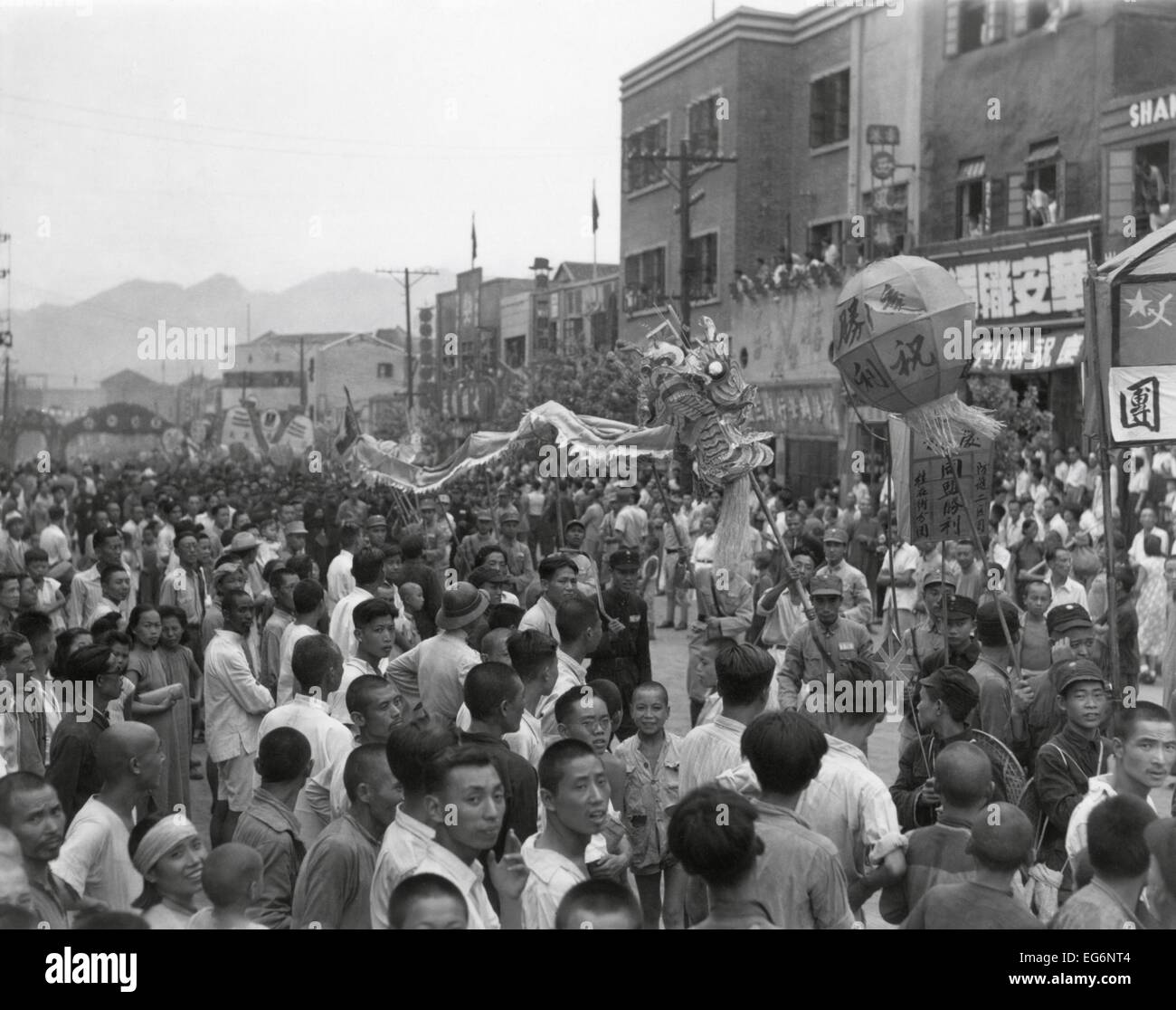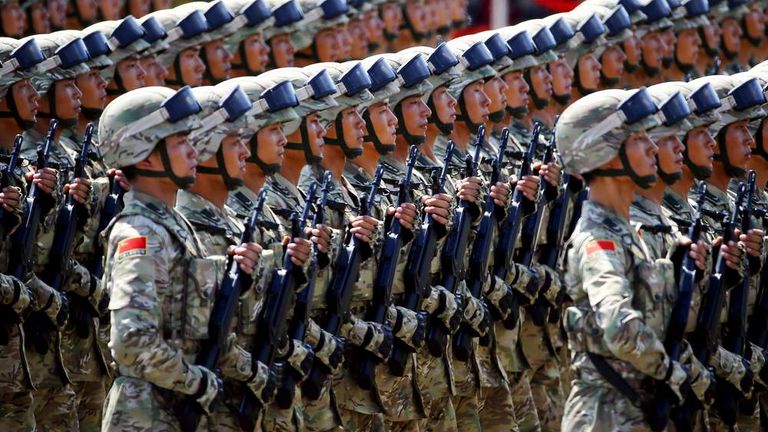
Stalin, or Chang Kai-Shek (or even Mao a little later on) didn't have to worry about these considerations. Ultimately this lead to the decision to use atomic weapons on Japan. With some notable exceptions, the Americans perferred to expend equipment and munitions as opposed to human bodies. To this day, this attitude is prevalent in the American military. The American approach was to build up and heavily equip their military forces (albeit with sometimes deficient equipment compared to the Nazi's). Roosevelt knew that the American public would quickly turn on him if losses exceeded the capacity of the American public's ability to digest them. Roosevelt, the always canny politician, cleverly leveraged being forced into war by the Japanese strike at Pearl Harbor into a larger "crusade" involving the "Axis" powers - a political arrangement that was tenuous at best between Nazi Germany and Japan. As a former "colony" the feeling was that America had no business "bailing out" those silly Europeans so soon after that last bail-out in WWI. It is not well know that a large % of Americans were vastly in opposition to joining the European theatre. In contrast, the America approach was intensely political.

There were no other strategies available at the time. To put it bluntly, these strategies were built on a lesser regard for human life than what had been historically present in the western societies.

These were the strategies available at the time due to many prior historical decisions and cultural development in these countries. To debate the humanitarian aspects of these strategies is likewise a fool's debate. The Nationalist's in China were similarily ill-equipped and employed similar strategies. Their army was ill-equipped and their military strategy consisted largely of overwhelming the Nazi's with a numerical superiority of troops. They conducted a "scorched earth" policy in the initial retreat back to Moscow before they went on the offensive. The Soviets had a particular strategy in their military operations that contributed heavily to the losses that were incurred. How that war was conducted and where, largely accounts for the devastation and losses occured. This contribution is largely forgotten in the more sensational debate about human losses. Tremendous amounts of war material were manufactured by the Americans and delivered both to Stalin and Chang Kai-Shek's forces to sustain them and allow them to prosecute the war in their respective theatres of action. What is beyond debate is that America was the "arsenal" that defeated both the Nazi's and the Japanese. Like Europe, this was essentially a two front war which was needed to be successful against the Japanese. But, the Americans largely fought the war elsewhere, under equally difficult circumstances.

It is very true that Chang Kai-Shek's Nationalist troops forced Japan to commit a significant part of their military capability in China. Simply Nazi Germany could not have been defeated without a two front war, which was supplied by the American (although the commonweath of Britain, including Canada, contributed in this theatre) and the Soviets in combination.Ģ) Likewise, in the Pacific theatre, to debate who defeated who is also a fool's debate. I do beg to differ in some points:ġ) To debate who defeated who is a fool's debate. You are correct in many points that you make and it is very appropriate that you bring these facts to the public knowledge. Signing of the document also marked the end of World War II. Japanese Emperor Hirohito officially capitulated to the Allies on August 15, 1945, and the surrender was signed two weeks later on September 2, 1945, on the deck of battleship USS Missouri in Tokyo Bay. Perhaps not coincidentally, President Xi Jinping just last week attended Russia's impressive commemorations marking the 70th Anniversary of the end of WWII as a guest of Russian President Vladimir Putin. The holiday adds back a non-October 1-related holiday period to China's calendar, with Mid-Autumn Festival's late appearance on September 27 resulting in no holiday – otherwise it would have been a make-up Sunday for October 1.Ī military parade would be held to mark the event, according to Xinhua, which will be the first time for the country to hold a special parade to commemorate the WWII victory. Sunday, September 6 will be a make-up work day.

China's State Council on Wednesday announced a three-day holiday set for September 3-5 to mark the 70th anniversary of the surrender of Japan and the end of World War II.Īccording to the new schedule, Thursday, September 3, will be observed as a national holiday, followed by two more days of vacation on Friday, September 4 and Saturday, September 5.


 0 kommentar(er)
0 kommentar(er)
